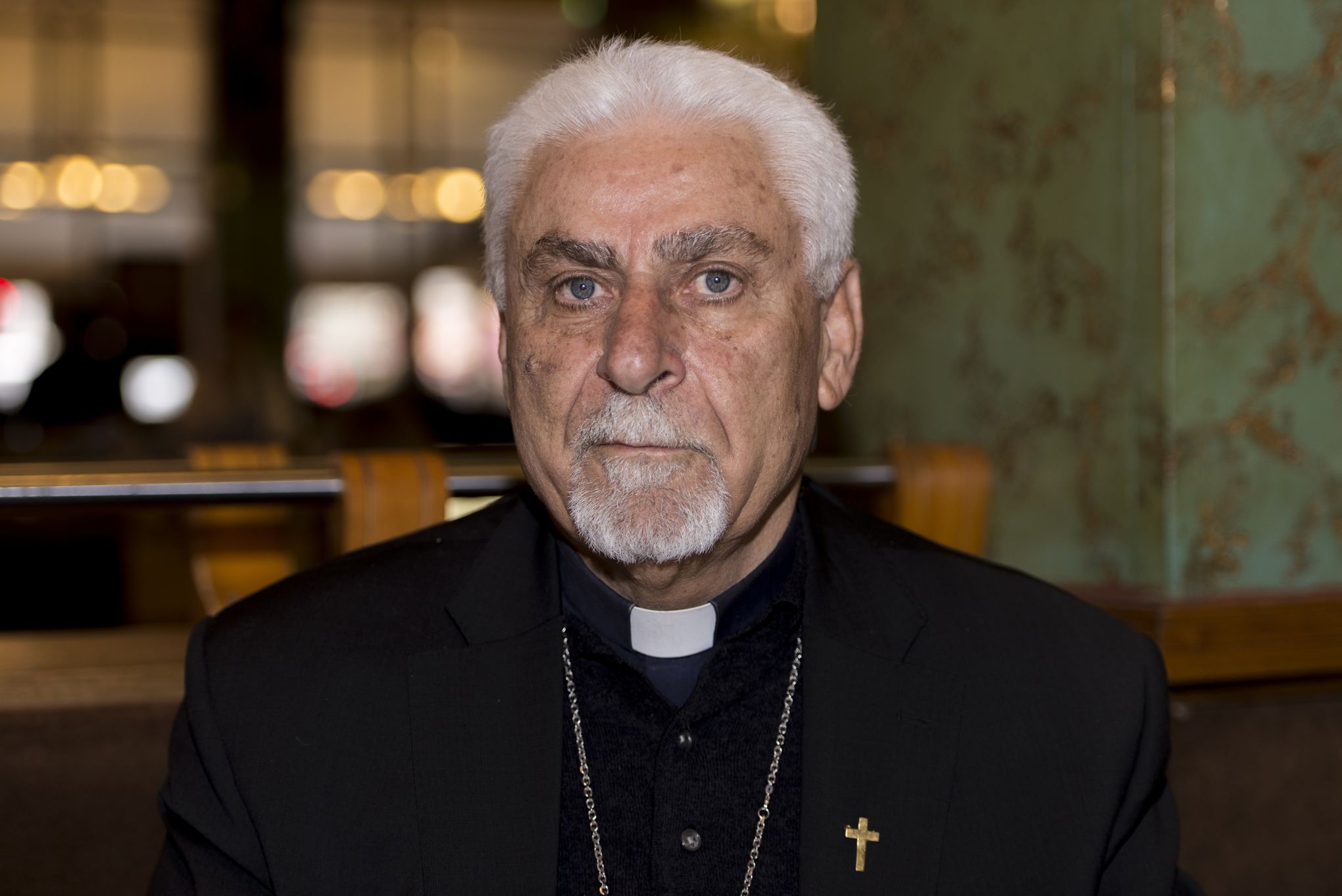Mosul offensive
The news of the Iraqi offensive to recapture Mosul, fallen into the hands of the Islamic State in 2014, rekindles the hopes of tens of thousands of displaced Christians in Kurdistan of returning to their homes in the second largest Iraqi city and in the nearby Niniveh Plain. Yearning to return and to resume dialogue with the rest of the Iraqi population -, Sunnis, Shias and members of other faiths – Christians call for the establishment of “a united country under a strong government” capable of ensuring security and stability. The testimony of the Syriac Catholic Archbishop of Mosul, Kirkuk and Kurdistan, Monsignor Petros Mouche. The appeal by Chaldean Patriarch Raphael Louis Sako, to put “the common good of the country and of all Iraqis before and above all else”

In his speech to the nation the Iraqi Prime Minister Haider al-Abadi had heralded it as “the hour of victory” against Daesh, but the military offensive launched to recapture Mosul already seems to suffer the first slowdowns. After the euphoria of the first day now realistic caution prevails, given that the Iraqi troops, supported by the Kurdish peshmerga, Shiite militias and those of the other allies, about 30,000 soldiers backed by planes of the international coalition led by the US, have to confront the resistance fighters of the Islamic State, estimated at about 6 thousand, entrenched in Mosul and the nearby villages, where the ground is littered with bombs and booby-traps, along with snipers prepared to use civilians as human shields.
A symbolic city. The offensive to recapture the second Iraqi city, a symbolic place of this Syrian-Iraqi war, was planned for months. This is where Abu Bakr al-Baghdadi, on June 29 2014, announced the establishment of the Caliphate. Once inhabited by some two million people, only half as many are estimated on the territory today. They are the object of special attention by the United Nations. According the UN Office for the Coordination of Humanitarian Affairs (OCHA), some 200 thousand people could be forced to flee in the first weeks after the outbreak of the anti-ISIS military offensive in Mosul. The armed conflict is still distant from the most populated urban areas but a more pessimistic scenario by the UN envisages one million displaced people, with about 700 thousand people seeking emergency shelters. In order to ensure the protection of civilians OCHA set up shelters for 60,000 people in camps and emergency sites, while preparation of sites for a further 250,000 people is accelerating. According to UNICEF, the offensive exposes over half a million children and their families to serious risks. “The children of Mosul have suffered enormously over the last two years. Many could be forced to flee, get trapped between the battle lines, or get caught in the crossfire”, pointed out Peter Hawkins, UNICEF representative in Iraq. In the meantime, on the battlefield, the Peshmerga – to the east – and the Iraqi troops – to the south of Mosul – have regained control of a number of villages, focusing on the consolidation of the conquered territories, located 20 to 50 KM from Mosul. Military operations are ongoing to liberate Qaraqosh, the town with the largest Christian community, which before being taken by the Islamic State (August 2014) was home to 50 thousand inhabitants, almost all of whom fled to Erbil, in Kurdistan. In the Kurdish capital hundreds of displaced Christians from Qaraqosh rejoiced at the news of the offensive and gathered to pray in the church of Mar Shimon.
Yearning to return. “We hope that the military operations to retake Mosul proceed smoothly”, said the Syriac Catholic archbishop of Mosul, Kirkuk and Kurdistan, Monsignor Petros Mouche, who confirmed: “Peshmerga and national army soldiers advance. They arrived in Qaraqosh, which has not yet been completely liberated. There are still pockets of resistance around the city.”
The liberation of Mosul, he said, “is a great sign of hope. We wish to return to our homes and regain possession of our belongings, in Mosul and in the villages in the Niniveh Plain. We love this land and we want to bear witness to it with our presence
But it is necessary to ensure our safety along with that of the other inhabitants. It’s important to live in a state of security with others, in mutual dignity and respect.” Mons. Mouche serves as archbishop of Mosul since 2011, he is well aware that no Christians are left in the city. Before the arrival of Daesh as many as 12 thousand Syriac-Catholic families lived in Mosul, others lived in the Niniveh Plains, in Kirkuk, Bertella and Qaraqosh. These local communities cherish the memory of their martyrs: Monsignor Faraj Rahho, Chaldean archbishop in Mosul, kidnapped and killed in 2008; Father Ragheed Ganni killed by the terrorists with three deacons on June 3 2007, shortly after having celebrated Sunday Mass in his parish church devoted to the Holy Spirit, in Mosul. The Syriac-Catholic archbishop extends his glance to the post-liberation period, when
“national reconciliation will have to be a priority. This will be possible only under a strong, united Iraqi Government.
We don’t want revenge among Muslims, Shiites and Sunnis, nor against minorities. – – he affirmed – we do not know the intentions for the future of our Country. However, its unity must be preserved. We want a united Iraq where everyone, Shiites, Sunnis, Christians and believers of other faiths live together in mutual respect and tolerance. On our part we will seek dialogue and reconciliation with everyone.” In a similar appeal the Chaldean Patriarch, president of the Iraqi Bishops’ Conference, Louis Raphael Sako , called upon “the beloved Iraqis” to put an end
“to disputes; to waiver self and factional interests; and uphold Iraqis’ benefit before and above everything else.”